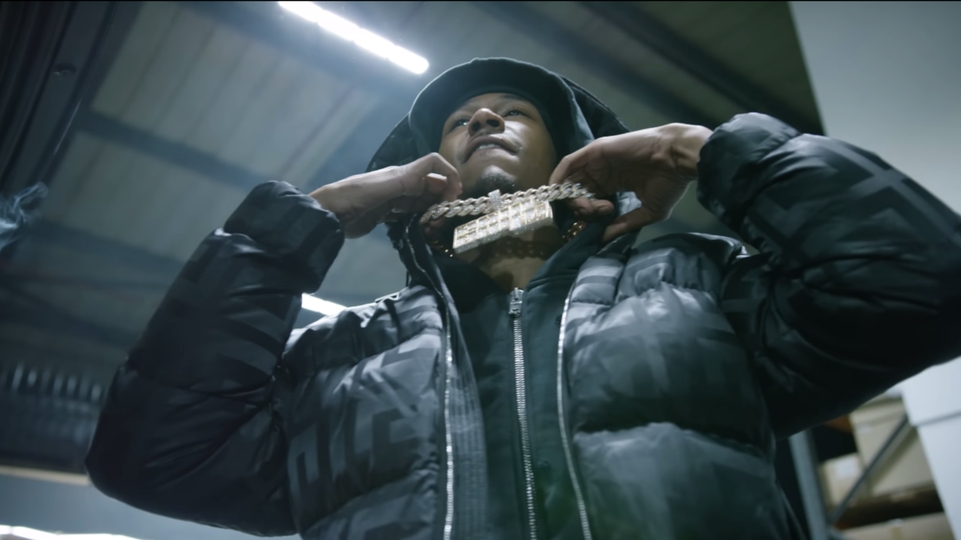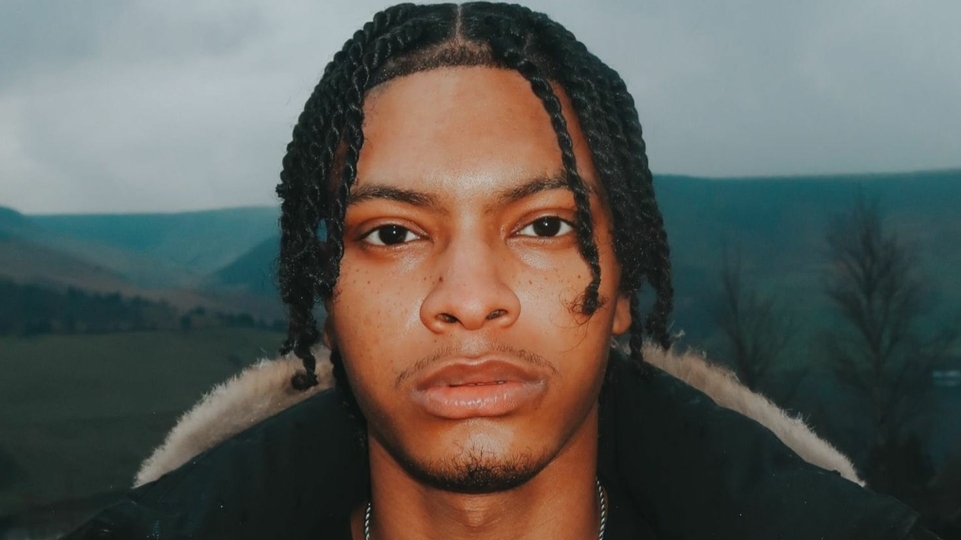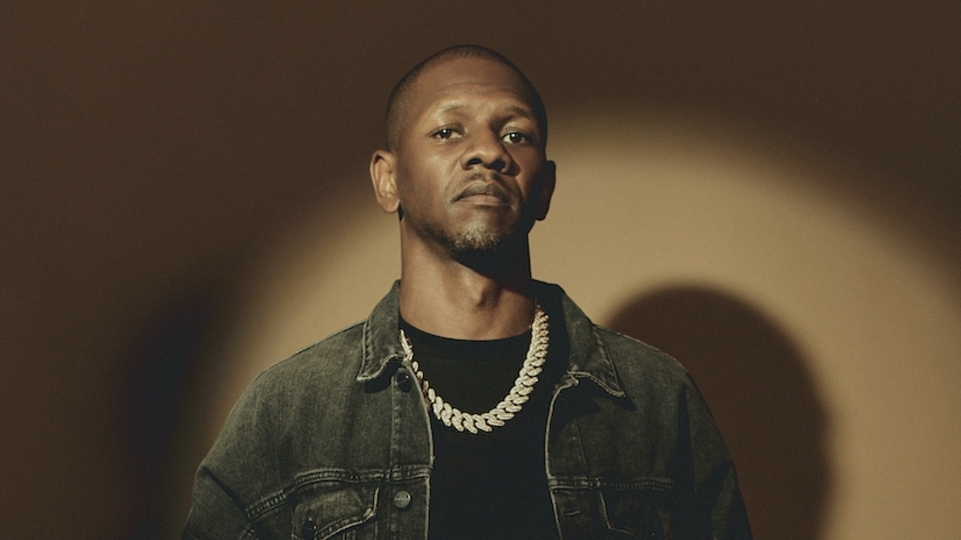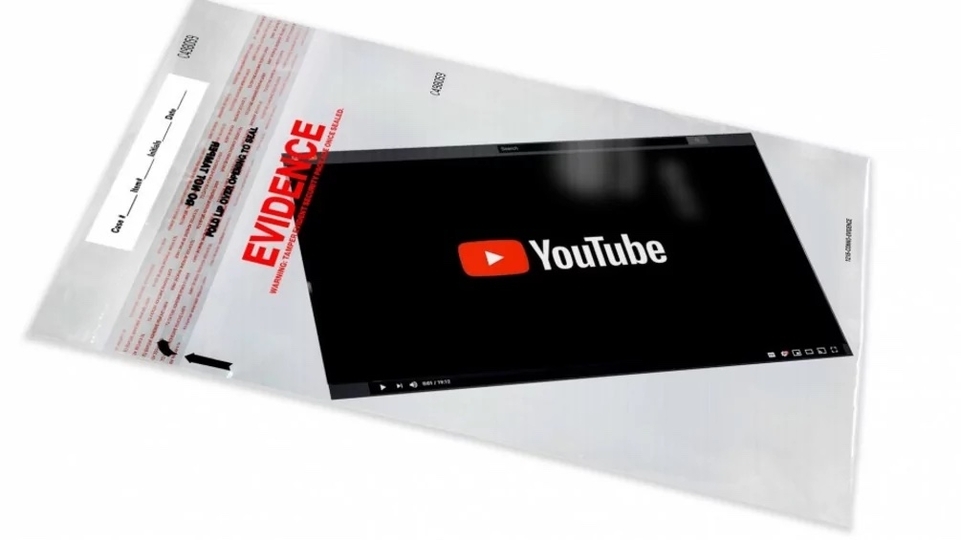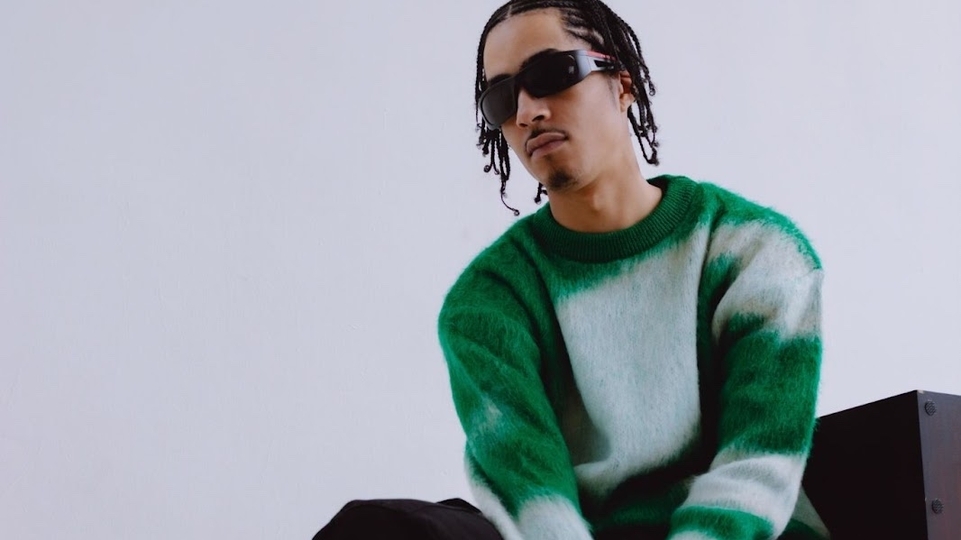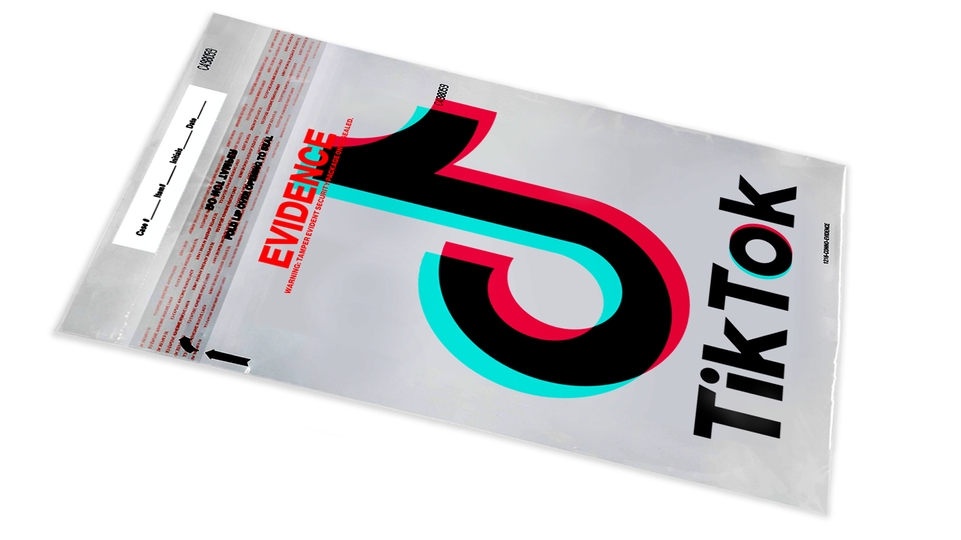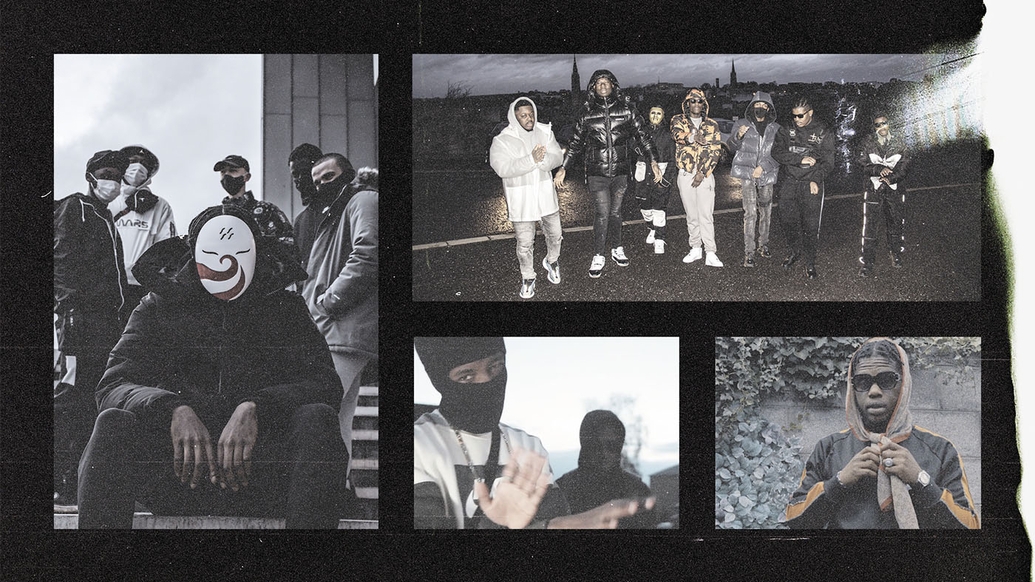
The rise of Irish drill
Ireland’s drill scene has been blowing up since 2018, with homegrown rappers and producers putting their own spin on the world-conquering sound. Robert Kazandjian speaks to key figures in the scene about experimentation, accents, and developing a new form of expression for Black Irish youth
Every drill scene has its transcendent track; one so potent that it blasts hyper-localised sounds out towards national and international listeners. ‘Don’t Like’, ‘Let’s Lurk’, ‘Welcome To The Party’ and ‘SORE’ are all canonical in the respective movements of Chicago, the UK, Brooklyn and Ghana.
‘Fix My Ring’, cooked up by Cubez and Reggie B in the town of Athlone, put Ireland’s now-thriving drill scene on the map in 2018. The pair, formerly affiliated with Athlone’s 090 crew, trade lyrics over a gothic Moneyevery production. Cubez’s West African steez shines through in his verse, while Reggie’s rumbling baritone bars are as cold as the waters of the Shannon.
Since ‘Fix My Ring’ landed, drill has become the dominant force in Irish rap, and Ireland’s fresh take on the genre has earned wider recognition. Homegrown YouTube channels Dearfach TV and New Eire TV have built large online followings through pushing the sound. 086’s Ciaran INKredible, who’s been making drill since 2017, has gained the support of tastemakers Charlie Sloth and Fumez the Engineer, after ferocious tracks like ‘Bad Intentions’ and ‘The Godfather’ racked up millions of views on YouTube. AV9’s hard-hitting anthems ‘Sasuke’ and ‘Happy Days’ are GRM Daily and Pressplay Media exclusives respectively, while Drogheda collective A92’s Plugged In Freestyle is comfortably the platform’s most viewed and streamed release to date. The scene is buzzing, healthy and growing into something much more complex and nuanced than simply an offshoot of UK drill.
Reggie, originally from Dundalk in Co. Louth, is one of the scene’s pioneers. “We were among the first to do it the way we did, from the flows and the rhymes to the drip. We’re very good at standing out, so I think that caught people’s attention.” He says ‘Fix My Ring’ represented a day in the life of himself and Cubez. “We were really just rapping about the things happening around us on a daily basis.”
The track was a watershed moment for Dearfach Group, and its YouTube channel Dearfach TV. The music platform was founded by entrepreneur Solomon Adesiyan (aka Prod Solo) in 2016 to promote Black Irish music, when he moved to Dublin from Co. Clare to study drumming at the British and Irish Modern Music Institute (BIMM).
Dearfach TV’s Bars at the Sesh freestyle series made waves across the Irish sea, alerting UK listeners to Ireland’s up-and-coming drillers, with JB2’s scatter-shot flow and Balbriggan crew AV9’s road-ready authenticity ringing out the loudest. Soon after, JB2 and AV9’s Chuks connected with a pre-‘Gun Lean’ Russ on ‘Link Up’. The jumpy cut, engineered and recorded by Solo, went viral.
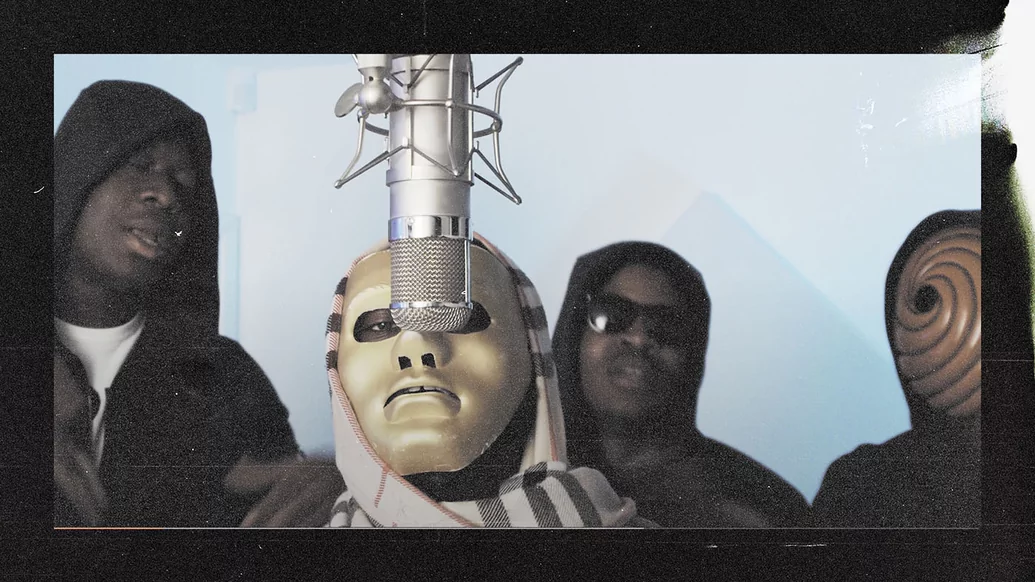

“I felt like there’s a lot of talent in the country but there was no place to showcase it. My vision with New Eire is to showcase the best of the best, so when someone from outside Ireland looks at the channel, that’s the impression they get.” - Sequence
INFLUENCES
UK drill, originally inspired by Chicago’s nihilistic iteration of the sound and pioneered by Brixton crews 67 and 150 in 2014, switched into its own lane when producers and rappers alike leant on influences closer to home, from grime and road rap to Afrobeats. Iconic tracks like ‘Know Better’, ‘Homerton B’ and ‘No Diet’ ushered the genre into the mainstream between 2018 and 2019, without diluting it. The sound resonated with Ireland’s youthful Black community, who experience the same marginalisation as their UK peers. They began experimenting, adding their own cultural twists to a tried and tested formula. With regional scenes appearing in places as far reaching as New York, Ghana, Australia and Amsterdam, today UK drill is a chart- topping, all conquering phenomenon; Irish drill looks set to follow that same trajectory.
The Irish scene is largely made up of the children of West African immigrants who arrived in Ireland during the Celtic Tiger economic boom. According to Solo, this context is its great strength. “We are a new-gen country and we have so many influences on our culture,” he explains. “You can never predict how an artist is gonna jump on a track. What we do is very unique.”
Solo is no longer associated with Dearfach, but remains an influential figure in Irish drill and has continued to shine a light on Black music in Ireland, curating Spotify’s ‘Rap IE’ playlist and launching the Trust It Entertainment label.
Rapper, videographer and Dearfach TV co-founder Sequence also moved on, forming New Eire TV. “I felt like there’s a lot of talent in the country but there was no place to showcase it,” he explains. “My vision with New Eire is to showcase the best of the best, so when someone from outside Ireland looks at the channel, that’s the impression they get.”
Platforms like Dearfach and New Eire TV are important as more traditional outlets in Ireland tend to overlook the drill scene, despite its success. “Radio stations don’t really pay attention to the scene,” Sequence explains. “It doesn’t seem like they’re interested. And we’re hitting big numbers — millions — but they turn a blind eye. And we want what’s going on here recognised.”
Solo echoes that sentiment. “In BIMM, I was one of three Black people out of 900 musicians. And it’s weird because they treat rap like a foreign concept, but they idolise it. They love Biggie and Tupac. But when their Black friend is doing it, they don’t support it. Once a white artist like Kojaque jumps on it, they support it because it’s not a foreign concept.”
86-reppin’ INK, who’s in his thirties, has been active in native rap circles for more than a decade. In 2017 he dropped ‘Eye For An Eye’. The classic cut paired his abrasive, cut-throat delivery with ominous church bells and jittering drums. Further tracks like ‘Bad Intentions’ and ‘The Godfather’ established him as a key player, famed for shelling down drill productions in full-blooded Dublin tones. He’s been the main subject of a Noisey documentary on the scene, spat Fire in the Booth for Charlie Sloth and recently served up a Plugged In Freestyle that blasts peers who rap in what’s perceived to be a ‘fake’ accent (“Pussyboy, bro you’re actin’ soft / You’re not English, bro your accent’s off”).
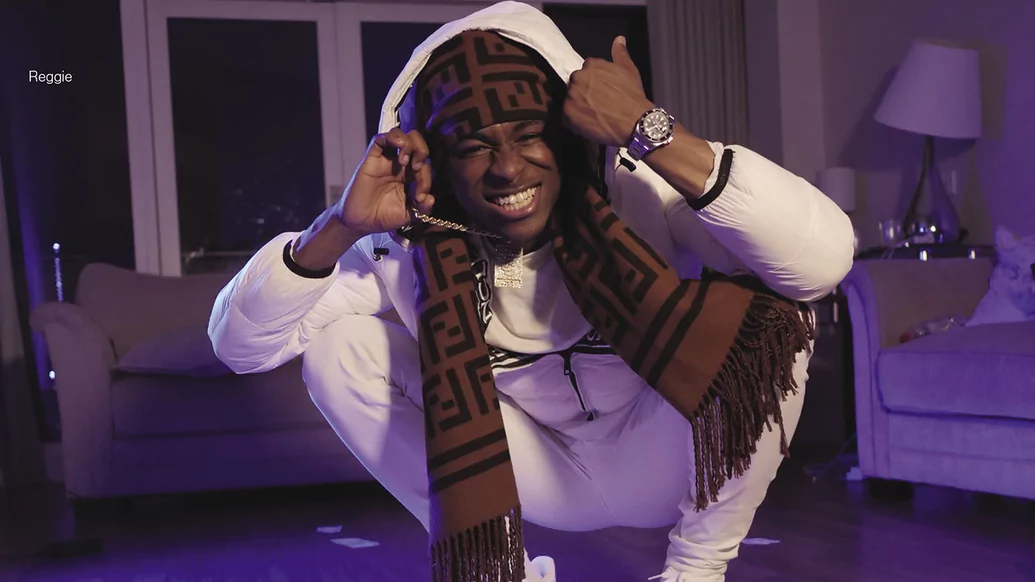
“I don’t really see the argument [about accents] because a lot of us originated from different parts of the world, we shouldn’t feel forced to rap in a certain way. My accent is a mixture of the environments I have had to adapt to.” - Reggie B
ACCENTS
Accents are complex things, though. Is there one way to sound Irish? A rapper’s accent is reflective of many factors, from the place of their birth and heritage to the communities they grow up in. “I don’t really see the argument because a lot of us originated from different parts of the world,” explains Reggie, who is Nigerian, and has lived in both the UK and Ireland. “We shouldn’t feel forced to rap in a certain way. My accent is a mixture of the environments I have had to adapt to.”
Reggie has addressed this directly in his music, unpicking institutional racism in Ireland on the BLM-inspired ‘My Accent’ (“All my people come from poverty / Talking ‘bout accents is not important”). In the accompanying visuals he’s draped in the Irish tricolour — a proud Black Irishman.
Drogheda’s Offica and his A92 crew (Dbo, Nikz, Ksav, Kebz, Trapboy BT, Andre Fazaz) is Irish drill’s breakaway success. Their Plugged In Freestyle has been viewed 25 million times on YouTube, and streamed upwards of 40 million times on Spotify.
In 2019, a spiral-masked Offica announced himself with the anime-referencing ‘Naruto Drillings’. Link-ups with Blanco and Fizzler followed. More recently, he’s performed on respected freestyle platforms Fire in the Booth and Mad About Bars. Offica’s blend of Irish and multicultural English slang with Yoruba is a real celebration of the cultures he belongs and relates to. “When I rap, I always come with the African flavours and vibe,” he enthuses. “But I’ve got flows as well!” His focus is putting on for his hometown, and uplifting young Black Irish people. “In Drogheda we’ve been a brotherhood from young. We’re still together now, the same heads that I started off with, really,” Offica continues. “What we’re doing, and the Irish drill scene is doing, is giving young Black teenagers hope that they can blow from a country that not too many of us come out of.”
DBo, whose Friday-inspired moniker is a reference to his impossibly deep tone, feels A92’s celebration of Irish African identity is what makes Irish drill distinct. “We use a lot of our Irish slang and terms, and then we throw in our African culture and backgrounds, Yoruba and different things. It’s what makes us different. It’s funkier.”
Andre Fazaz’s versatility is a product of this melting-pot, switching between hard-hitting drill patterns and smooth Afrobeats vocals. “I’ve lived both lives in the sense of being around certain scenes and being involved in certain situations and having to back my brothers. But I’m also very good at Afrobeats, singing about girls and love. I can relate to both genres without lying or fibbing on tracks. So why not do both? They’re both reality to me.” For Andre, any criticism around accents is ignorant. “People are just stupid, big man ting. We don’t all speak with a thick Irish accent. Mandem rap how they rap. Nobody goes to the studio and says, ‘Oh, lemme use a fake voice’. Irish drill is about what we face in Ireland as Irish teens. It’s that simple.”
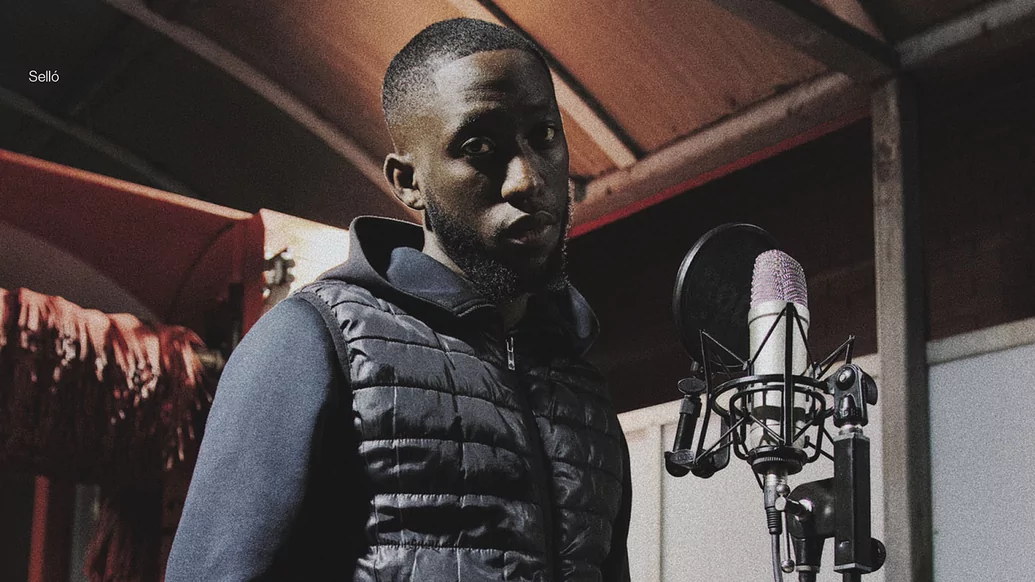

REGIONAL SOUNDS
Regional accents do undoubtedly make a sound richer. UK rap is infinitely better for the inclusion of M1llionz’s patois-laced Brummie drawl and Pa Salieu’s Gambian-inflected Cov lilt. With Irish drill firmly established and entering its second wave, artists are stepping out with even more diversity and nuance to their sound. Dublin’s AC-130 is on the rise. His mellow, smoked-out descriptions of inner-city drug dealing and violence on the roads, coupled with his unmistakable Dublin cadence on ‘Exotic Finish’, have created a real buzz around his name. ‘Reality Check’ doubled down on that cadence (“What’s with the accent? You’re not from London/better check my bro, it’s Dublin”).
Embracing the accent took time, though. “It took me a while to actually perfect it. A lot of man are gonna start using it now, but I’m telling you: I’m the master of it. I’ve got it down to a tee. That’s not cockiness. It took me a while before I could say that. I’ve just been working hard.” AC-130 turned to music at the age of 15, as a way of getting off the roads and earning a legit income. Drill has provided him with a crucial means of expression. “It’s been mad important, bro. I never had a platform. I couldn’t talk about anything. Now I can talk about everything,” he explains. “My album is gonna say a lot... so music has really helped me.”
Sellò, hailing from Clondalkin in West Dublin, is pioneering a new form of Irish drill. “I don’t want to sound like anybody else in the scene,” he explains. “I want to be unique. That’s how the whole Gaelic drill sound I’ve got going on came about. Originally I wanted to call it ‘Ceol’, which is the Gaelic word for music. Speaking from the heart, my aim is to be unapologetically Irish.”
Selló’s excellent single, ‘Dublin’, is laced with local references and flourishes of Gaelic (“Seasaigí, that’s my clann, my family”). The production samples Sinéad O’Connor and The Chieftains’ version of classic Irish folk song, ‘The Foggy Dew’. In the video, which appeared on heavyweight drill platform Pressplay Media, Selló is posted up with a hurling stick in his hand. His message couldn’t be clearer: “I’m showing people that I’m Black, and I’m Irish, and I really do this.”
From Athlone, Balbriggan and Drogheda to the capital, Irish drill is a nationwide movement. In the small town of Portlaoise in the South Midlands, the masked Sosa Sensei is carving out his own ‘autodrill’ lane — autotune-assisted, trap wave-leaning drill that switches the harsher sonics of the genre for something a little softer. The melodic, wavy vibe of Sosa’s debut track, ‘Just Fine’, taps into those influences and provides an outlet for difficult emotions and experiences. His aim is to be different in an increasingly crowded, buzzing scene. “Drill is the most impactful genre in Ireland. You’ve got kids, 14-and 15-year-olds, hopping on it. It’s so influential now. So the question is, how do you differentiate yourself from everyone else? That’s what I’m doing.”
Irish drill is not confined by arbitrary borders either. In the North, the lyrically dexterous Hyfin puts on for his hometown of Derry. “Artists from the UK like Tremz, with the scouse accent, and Shogun from Scotland, had me take my own accent seriously. So now there’s nobody who can tell me I don’t represent where I’m from or what I do.” Hyfin’s New Eire Flow freestyle is loaded with gritty realism and elevated by his instantly recognisable Derry timbre. “The drill I make is about the life I’ve lived,” he explains. “Me going out and getting a bag with the boys, one of us getting raided. I wanna show what it is to be a boy like me in Derry. I want my accent to be mainstream, I want it to be something normalised. I want people using our-isms and slang.”
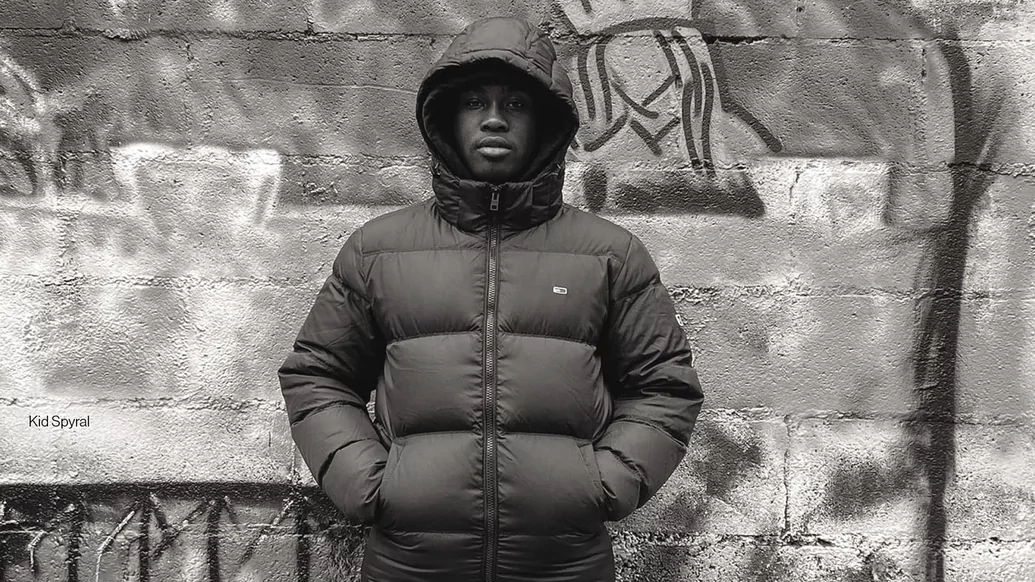
PRODUCERS
Ireland’s drillers are not reliant on using beats from UK producers either. The Irish scene is blessed with a youth-led producer community. The inventiveness and skill of beatmakers like JayBenJay, Kid Spyral, Charlie Mockler and LukeFly is being recognised both at home and abroad. JayBenJay has worked with drill legend AM, masterminded Offica and Fizzler’s infectious collaboration, ‘SkiddiBop’, and co-produced Ivorian Doll’s ‘Daily Duppy’. He was encouraged to start producing after a chance meeting in church. “I used to play piano there,” he explains. “And I met Solo. He made me download FL Studio and that’s how I started.” Not limiting himself to one sound, his production pushes boundaries. “My beats have an R&B, Afroswing vibe,” he explains. “They’re very hard-hitting.”
Kid Spyral was producing trap beats before the magnetic force of drill drew him into its orbit. “It was the rawness and grunginess of the beats,” he enthuses. “It was so different from anything else that’s happening.” Offica’s ‘Naruto Drillings’ and ‘Face Reveal’ launched Spyral’s career, highlighting his flair for oriental-inspired drill productions. “I like oriental sounds, Japanese sounds,” he continues. “And I sample a lot of Naruto too. So I’d say Irish drill is not as serious and dark as UK drill. We have more fun with it and get more experimental.” Drogheda-based producer Charlie Mockler cooked up the beat for A92’s viral Plugged In Freestyle. “When it came out and I saw the numbers, it was like Jesus Christ! I was shocked,” he says. “It was surreal.”
Charlie relishes the variation that’s bled into drill production. “Now we’re chopping up samples and we’re using ethnic instruments like flutes and guitars. You’d never hear that a few years ago. These amazing guitar patterns and bouncy pad patterns, they’re making drill such an exciting genre to be part of.”
Galway’s LukeFly was on the buttons for AC-130’s dreamlike, trippy cut, ‘Exotic Finish’. It’s a hazy, warm production. He plays with butter-smooth synths on Sequence’s ‘Free’, while his work on Brooklyn driller MaxThaDemon’s ‘Speak On It’ is as brooding and muscular as they come. He explains his range: “Experimentation has gone through the roof. There’s no more barriers as to where drill can go sonically.”
Luke believes there’s a special energy driving the Irish scene. “Ireland’s so small... everyone’s accessible. So it’s very easy for us to collaborate together. We’ve developed a very strong bond in a short space of time. I feel like we have this underdog mentality. There’s a ridiculous amount of talent just waiting to be discovered, and a bubbling excitement within the scene, like we’re coming for the rest of the world.”
It’s a belief shared by Solo, who’s grafted harder than most behind the scenes to advance Irish drill. “I’m doing some big deals in the UK to make Irish drill international,” he enthuses. “People are gonna be very, very shocked. I’d say it will take three years for Ireland to take over the European scene, and even the international scene. I can say that with my chest.”

